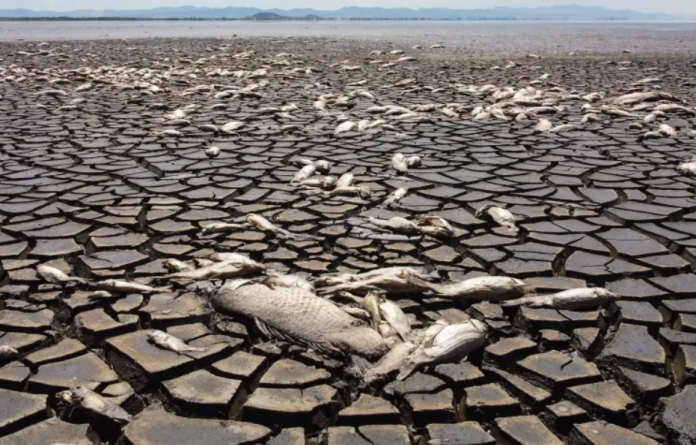EU’s climate monitor says climate crisis is pushing temperatures to levels never experienced by modern humans.
The world has just experienced the first full year in which global temperatures exceeded 1.5C above pre-industrial times, scientists have said.
The milestone was confirmed by the European Union’s Copernicus Climate Change Service (C3S) on Friday, which said the climate crisis is pushing the planet’s temperature to levels never before experienced by modern humans.
“The trajectory is just incredible,” C3S director Carlo Buontempo told the Reuters news agency, describing how every month in 2024 was the warmest or second-warmest for that month since records began.
The planet’s average temperature in 2024 was 1.6 degrees Celsius higher than in 1850-1900, the “pre-industrial period” before humans began burning CO2-emitting fossil fuels on a large scale, C3S added.
This does not mean the internationally agreed 1.5C warming threshold has been permanently breached, but the C3S said that was drawing dangerously near.
“The primary reason for these record temperatures is the accumulation of greenhouse gases in the atmosphere” from the burning of coal, oil and gas, said Samantha Burgess, strategic climate lead at Copernicus.
“As greenhouse gases continue to accumulate in the atmosphere, temperatures continue to increase, including in the ocean, sea levels continue to rise, and glaciers and ice sheets continue to melt.”
Last year eclipsed 2023’s temperature in the European database by an eighth of a degree Celsius (more than a fifth of a degree Fahrenheit). That’s an unusually large jump; until the last couple of super-hot years, global temperature records were exceeded only by hundredths of a degree, scientists said.
The last 10 years are the 10 hottest on record and are likely the hottest in 125,000 years, Burgess said.
July 10 was the hottest day recorded by humans, with the globe averaging 17.16 degrees Celsius (62.89 degrees Fahrenheit), Copernicus found.
On Friday, Britain’s Met Office confirmed 2024’s likely breach of 1.5C, while estimating a slightly lower average temperature rise of 1.53C for the year.
United States scientists are also expected to publish their 2024 climate data on Friday.
‘A rude awakening’
In 2015, nearly 200 nations agreed in Paris that limiting warming to 1.5C above pre-industrial levels offered the best chance of preventing the most catastrophic repercussions of climate change.
But the world is nowhere on track to meeting that target.
The effects of climate change are now visible on every continent, affecting people from the richest to the poorest countries on earth.
Wildfires raging in California this week have killed at least 10 people and destroyed hundreds of homes.
In 2024, Bolivia and Venezuela also suffered disastrous fires, while torrential floods hit Nepal, Sudan and Spain, and heatwaves in Mexico and Saudi Arabia killed thousands.
Climate change is also worsening storms and torrential rainfall, because a hotter atmosphere can hold more water, leading to intense downpours. The amount of water vapour in the planet’s atmosphere reached a record high in 2024.
But even as the costs of these disasters spiral, the political will to invest in curbing emissions has waned in some countries.
US President-elect Donald Trump, who takes office on January 20, has called climate change a “hoax”, despite the global scientific consensus that it is human-caused and will have severe consequences if not addressed.
Chukwumerije Okereke, a professor of global climate governance at the United Kingdom’s University of Bristol, said crossing the 1.5C milestone should serve as “a rude awakening to key political actors to get their act together”.
“Despite all the warnings that scientists have given, nations … are continuing to fail to live up to their responsibilities,” he told Reuters.





















